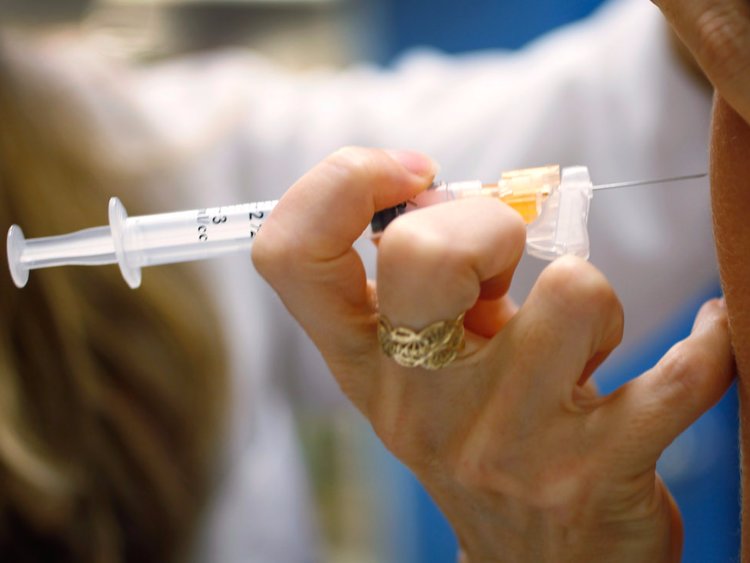Biopsy of genital warts (human papillomavirus)
What are genital warts?
Genital warts are a sexually transmitted infection (STI) caused by certain strains of the human papillomavirus (HPV). HPV is a very common virus with over 100 strains. Some strains can cause cancerous changes, while others cause no physical symptoms and resolve themselves.
Two strains of HPV in particular—HPV 6 and HPV 11—are responsible for about 9 out of 10 cases of genital warts.
Genital warts may also be known by other names such as genitoanal warts, anogenital warts, or condylomata acuminata.
Exam Overview
Your doctor may take a sample, or biopsy, of abnormal tissue. The majority of warts do not require a biopsy. But a biopsy may be taken if genital warts cannot be easily identified with a physical exam or during a gynecology exam with a lighted magnifying instrument ( colposcopy ). A microscopic exam on the biopsied tissue can help your doctor find out whether human papillomavirus (HPV) is present.
The biopsy can be done in your doctor's office or clinic. You may have an injection of a numbing medicine ( local anesthetic ). This is more likely to be used for biopsies of the outer genital area on both men and women: this includes the vulva , scrotum , or penis. The injection can be painful. But local anesthetic is needed when the biopsy is likely to be more painful than the injection.
There usually are no complications after a biopsy.
Why It Is Done?
You may have a biopsy if any of the following are true:
Your doctor is not sure what type of abnormal tissue is present.
Warts have not responded to treatment.
Warts appear unusual.
Results:
Findings of a biopsy may include the following:
Normal
No abnormal cells are found, which usually means that an HPV is not present.
Abnormal
Abnormal cells called koilocytes are found. Koilocytes are cells that appear hollow or concave when examined under a microscope. Koilocyte cells collected from the genital or anal areas are abnormal and indicate infection with the human papillomavirus (HPV).
Other types of skin lesions also may be found.
Abnormal cervical cell changes caused by HPV will be treated differently from how genital warts are treated.
What To Think About?
Treatment for abnormal cells includes watchful waiting without treatment, medical treatment, or removal of the abnormal tissue.
The decision to do a biopsy will be based on whether biopsy results are likely to affect treatment.
If a biopsy confirms male genital, vaginal, or perianal warts, medical treatment is an option.
Sexual intercourse should be avoided until the biopsy area is healed.
HPV refers to Human Papillomavirus. This is a common virus, which has got more than 100 different types and over 40 of these types are transmitted sexually. This virus may cause cervical cancer and cases of genital warts. It is likely to occur in people who are sexually active to contract genital HPV, and it is not accompanied by any signs or symptoms. The virus is transmitted via skin to skin contact and is severely infectious in nature. Using condoms may reduce the risk of spreading of this virus, but is not always successful.
There are two major vaccines for HPV.
Gardasil: This vaccine prevents the most common HPVs which are associated with genital and anal cancer, and also warts of both genital and anal type.
Cervarix: This type of vaccine prevents HPV associated with the occurrence of cervical cancer.
Reasons for vaccination against HPV
HPV vaccines are recommended to girls between 11 and 12 years. It is also given to girls and women between the age of 13 and 26 years, who have never been vaccinated against HPC before. These vaccines should be given to females before they start being active sexually and get exposed to the HPV virus. Sexually active females benefit from these vaccines as well, but the effect is less.
Here are three reasons why you should vaccinate against HPV:
All types of HPV vaccine help in the elimination of the viruses which cause cervical cancer. Viruses causing cancer in the vulva, vagina or anus are also targeted by these HPV vaccines. The HPV vaccines also protect against genital or anal warts. HPV vaccines work effectively in the prevention of cancers caused by HPC viruses and also curb the common health problems which are accompanied.
The effect of HPV vaccines is quite long lasting in an individual who is vaccinated against HPV. Usually it lasts for ten years or more without having any related disorders or cancers. The protection does not weaken over time and remains stable.
HPV vaccines are licensed by the FDA to be completely safe and efficient to use. Extensive studies have been carried out globally, and no safety concerns have ever arisen. The side effects of HPV vaccines are usually quite mild. However, a little amount of pain, dizziness and nausea are involved.
HPV vaccines are a series of effective vaccines, which prevent the occurrence of cervical cancer and other cancers which are sexually transmitted. They are generally given to women before getting sexually active to prevent transmission of HPV viruses. Some HPV vaccines are prescribed to males as well.










